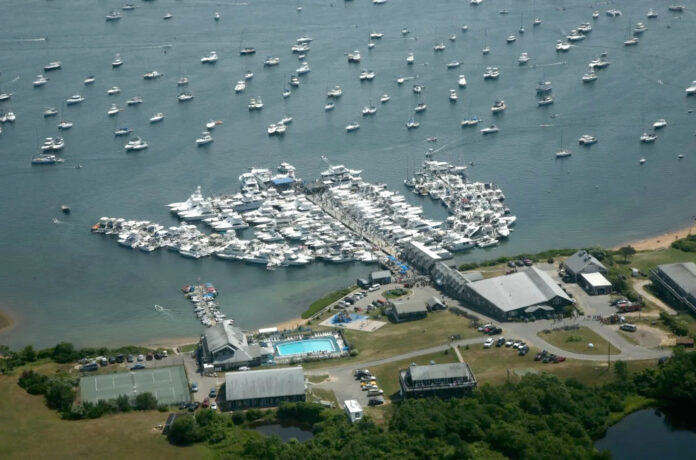
NEW SHOREHAM – A controversial proposal to expand a Block Island marina was struck down for the final time by the state’s highest court on Friday.
The R.I. Supreme Court’s decision ends the nearly two-decadeslong legal battle over Champlin’s Hotel, Marina & Resort’s marina expansion. The proposed expansion into the nearby Great Salt Pond has been a flashpoint for town officials and environmentalists who say the project would “overdevelop” the natural area. Coastal regulators originally denied Champlin’s application in 2011, but nearly a decade later came up with a compromise solution that would let the business expand by a smaller amount – adding about 150 feet of dockage compared with the original 240-foot expansion.
The alleged “backroom deal” brought the dispute to a head, with a flurry of legal filings by both sides. Champlin’s and the R.I. Coastal Resources Management Council sought to have their agreement entered into the legal record for consideration, while opponents, including the R.I. Office of the Attorney General, said the agreement should not count, citing lack of transparency, among other concerns.
The latest decision by the state’s highest court ends the back-and-forth for good, concluding that the compromise agreement was invalid because the CRMC had already denied the original application. Indeed, the rules governing state regulators only allow them to make changes to an approved decision. The group does not have the authority to change an agreement when the application has already been denied, according to Chief Justice Paul Suttell, who authored the decision.
R.I. Attorney General Peter F. Neronha lauded the decision as a “win for all Rhode Islanders.”
“Regulatory agencies have to follow the rules and cannot engage in ad-hoc, behind-closed-door deals that ignore their own procedures and evidence for the sake of expediency,” Neronha said in a statement.
James Crowley, an attorney for the Conservation Law Foundation, which also opposed the expansion, called the decision a “major victory for Block Island.”
“The Great Salt Pond is one of the state’s pristine environmental gems, and this huge proposed expansion of the marina would permanently scar it,” Crowley said. “After almost two decades, this should be the end of the expansion effort.”
Robert Goldberg, the attorney representing Champlin’s, called the ruling a disappointment.
“The proposed expansion was designed to provide the public with additional access and enjoyment of Great Salt Pond while also making sure the environment was protected,” Goldberg said in an emailed response.
Goldberg also said the mediation between the business and the CRMC that led to the compromise agreement was a “long-recognized tool for alternative dispute resolution,” and that it “seemed like a good idea at the time.”
The CRMC declined to comment on the decision.
The business is owned by Providence-based Procaccianti Cos. and includes a hotel, dockside buildings, swimming pool, restaurant and movie theater.
(UPDATE adds paragraphs nine, 10 and 11 with comment from attorney Robert Goldberg. SECOND UPDATE adjusts the 12th paragraph to reflect that the CRMC declined to comment.)
Nancy Lavin is a PBN staff writer. You may reach her at Lavin@PBN.com.











